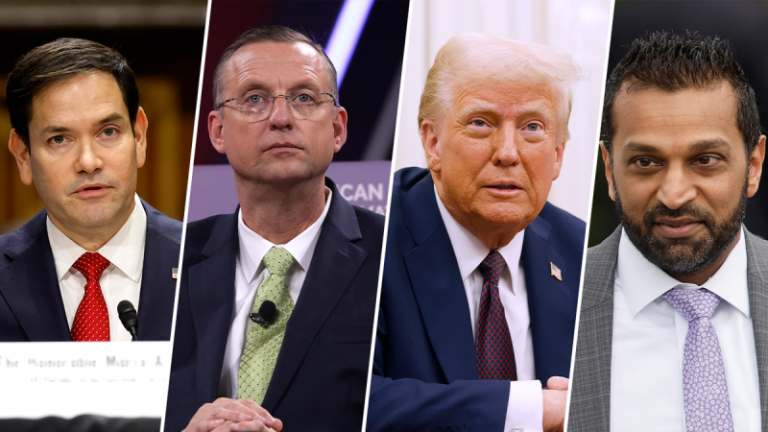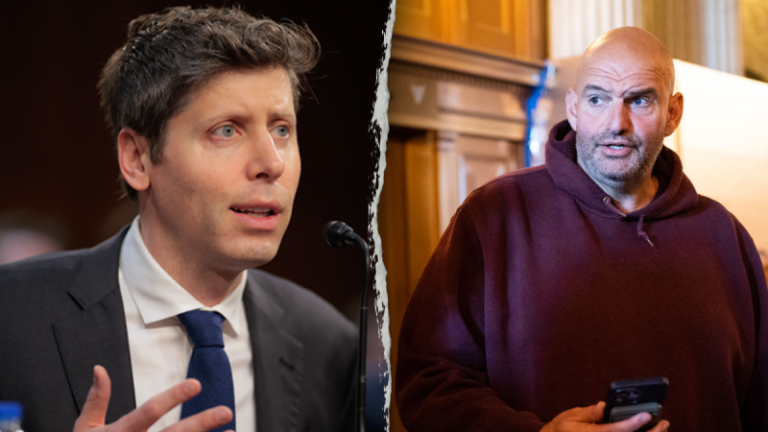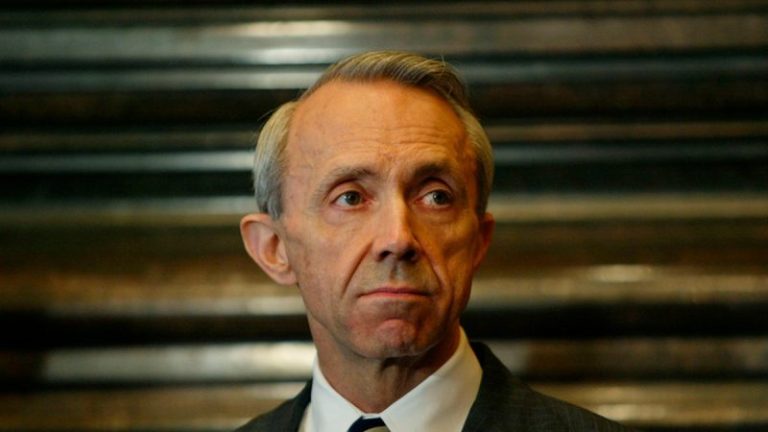Amid firings and government shake-ups, the Trump administration has repeatedly been assigning additional job roles to Cabinet members and other officials, Fox News Digital found.
Secretary of State Marco Rubio was charged on May 1 with serving as Trump’s national security advisor after the president announced he had nominated former National Security Council chief Mike Waltz to serve as the U.S. ambassador to the United Nations.
Rubio’s roles in the administration now include leading the State Department; serving as acting archivist of the United States after Trump ousted a Biden-era appointee; serving as acting administrator of the U.S. Agency for International Development as the admin works to dissolve the independent agency by September; and taking the helm as the interim national security advisor.
But Rubio is not alone in taking on multiple roles within Trump’s second administration. Fox News Digital looks back on the various Trump Cabinet members and officials who are wearing multiple hats as the president works to realign the federal government to track with his ‘America First’ policies.
Marco Rubio
Rubio and the Trump administration have come under fire from Democrats for the secretary of state holding multiple high-profile roles in the second administration, including Democrats sounding off on the national security council shake-up on Sunday news shows.
‘There’s no way he can do that and do it well, especially since there’s such incompetence over at DOD with Pete Hegseth being secretary of defense and just the hollowing out of the top leadership,’ Illinois Democrat Sen. Tammy Duckworth said on CBS’s ‘Face the Nation.’ ‘There’s no way he can carry all that entire load on his own.’
‘I don’t know how anybody could do these two big jobs,’ Democrat Virginia Sen. Mark Warner said Sunday on CNN’s ‘State of the Union.’
When asked about the trend of Trump officials wearing multiple work hats, the White House reflected in comment to Fox News Digital on former President Joe Biden’s ‘disaster of a Cabinet.’
‘Democrats cheered on Joe Biden’s disaster of a Cabinet as it launched the botched Afghanistan withdrawal, opened the southern border to migrant criminals, weaponized the justice system against political opponents, and more,’ White House spokesperson Anna Kelly told Fox News Digital. ‘President Trump has filled his administration with many qualified, talented individuals he trusts to manage many responsibilities.’
The Trump administration has previously brushed off concern over Rubio holding multiple roles, most notably juggling both his State Department leadership and serving as acting national security advisor. Similarly, former President Richard Nixon in 1973 named then-National Security Advisor Henry Kissinger to simultaneously serve as secretary of state.
‘You need a team player who is very honest with the president and the senior team, not someone trying to build an empire or wield a knife or drive their own agenda. He is singularly focused on delivering the president’s agenda,’ an administration official told Politico.
Rubio’s multiple national security roles come as war continues between Russia and Ukraine, Israel and Gaza, and recently launched attacks from India on Pakistan.
‘I am monitoring the situation between India and Pakistan closely,’ Rubio said in a Tuesday X post. ‘I echo @POTUS’s comments earlier today that this hopefully ends quickly and will continue to engage both Indian and Pakistani leadership towards a peaceful resolution.’
As Rubio juggles multiple roles, the Trump administration’s foreign policies have closely involved special envoys, most notably Steve Witkoff, Trump’s special envoy to the Middle East.
Witkoff is a former real estate tycoon and longtime ally of Trump’s whose focus in the Trump administration has been on negotiating with Russia amid its war against Ukraine and leading talks with Iran regarding its nuclear program. Witkoff was notably credited with helping secure the release of U.S. schoolteacher Marc Fogel from a Russian prison in February.
Fox News Digital reached out to the State Department for comment on Rubio’s multiple roles but did not receive a response.
Kash Patel
FBI Director Kash Patel, who railed against the ‘deep state’ and vowed to strip corruption from the federal law enforcement agency ahead of his confirmation, was briefly charged with overseeing the of the Bureau of Alcohol, Tobacco, Firearms and Explosives (ATF) in February after the Biden-era director resigned in January.
Patel was later replaced by Secretary of the Army Daniel Driscoll as acting ATF director in a job change that was publicly reported in April.
‘Director Kash Patel was briefly designated ATF director while awaiting Senate confirmations, a standard, short-term move. Dozens of similar re-designations have occurred across the federal government,’ the White House told Reuters in April. ‘Director Patel is now excelling in his role at the FBI and delivering outstanding results.’
Daniel Driscoll
Driscoll was sworn in as the 26th secretary of the Army in February. The secretary of the army is a senior-level civilian official charged with overseeing the management of the Army and also acts as an advisor to the secretary of defense in matters related to the Army.
It was reported in April that Driscoll was named acting ATF director, replacing Patel in that role.
‘Mr. Driscoll is responsible for the oversight of the agency’s mission to protect communities from violent criminals, criminal organizations, and the illegal trafficking of firearms, explosives, and contraband. Under his leadership, the ATF works to enforce federal laws, ensure public safety, and provide critical support in the investigation of firearms-related crimes and domestic and international criminal enterprises,’ his ATF biography reads.
Ahead of Trump taking office, Republican Reps. Eric Burlison of Missouri and Lauren Boebert of Colorado introduced legislation to abolish the ATF, saying the agency has worked to strip Second Amendment rights from U.S. citizens.
The ATF has been tasked with assisting the Department of Homeland Security in its deportation efforts under the Trump administration.
Doug Collins
Former Georgia Republican Rep. Doug Collins was sworn-in as the Trump administration’s secretary of Veterans Affairs in February, a Cabinet-level position tasked with overseeing the department and its mission of providing health, education and financial benefits to military veterans.
Days after his confirmation as VA secretary, Trump tapped Collins to temporarily lead two oversight agencies: the Office of Government Ethics and the Office of Special Counsel.
The Office of Government Ethics is charged with overseeing the executive branch’s ethics program, including setting ethics standards for the government and monitoring ethics compliance across federal agencies and departments.
The Office of Special Counsel is charged with overseeing and protecting the federal government’s merit system, most notably ensuring federal whistleblowers don’t face retaliation for sounding the alarm on an issue they’ve experienced. The office also has an established secure channel to allow federal employees to blow the whistle on alleged wrongdoing.
The Office of Special Counsel also enforces the Hatch Act, which bans executive branch staffers, except the president and vice president, from engaging in certain forms of political activity.
Russell Vought
Trump named his former director of the Office of Management and Budget under his first administration, Russell Vought, to the same role in his second administration. Vought was confirmed as the federal government’s budget chief in February.
Days later, Vought was also named the acting director of the Consumer Financial Protection Bureau (CFPB).
The CFPB is an independent government agency charged with protecting consumers from unfair financial practices in the private sector. It was created in 2010 under the Obama administration after the financial crash in 2008. Democrat Massachusetts Sen. Elizabeth Warren originally proposed and advocated for the creation of the agency.
The CFPB came under fierce investigation from the Department of Government Efficiency in February, with mass terminations rocking the agency before the reduction in force initiative was tied up in court.
Ric Grenell
President Donald Trump’s former ambassador to Germany and acting director of national intelligence under his first term, a pair of roles held at separate times in the first administration, currently serves as president of the Kennedy Center and special presidential envoy for special missions of the United States.
The John F. Kennedy Center for the Performing Arts serves as the national cultural center of the U.S. Trump notably serves as the center’s chair of the board, with Grenell saying the center will see a ‘golden age’ of the arts during Trump’s second administration through productions and concerts that Americans actually want to see after years of the performing arts center running in the red.
Trump named Grenell as his special presidential envoy for special missions to the United States in December before his inauguration, saying Grenell will ‘work in some of the hottest spots around the world, including Venezuela and North Korea.’
In this role, Grenell helped lead the administration through its response to the wildfires that tore through Southern California in the last days of the Biden administration through the beginning days of the Trump administration.
Fox News Digital reached out to the White House for comment on the administration officials working multiple high-profile roles as opposed to appointing or nominating other qualified individuals but did not receive a response.
This post appeared first on FOX NEWS










